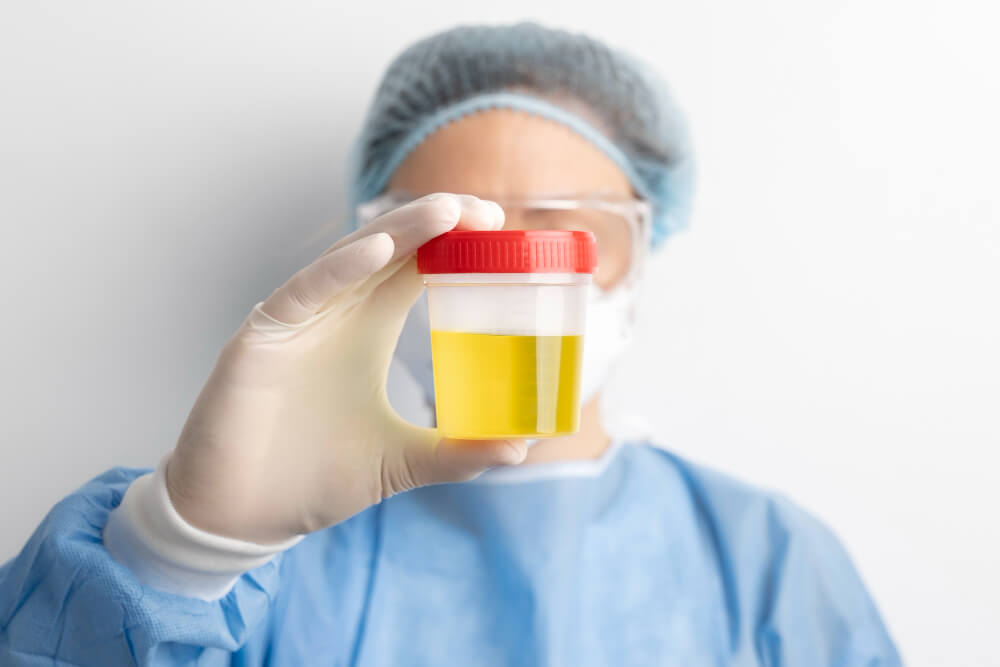Urinalysis: A Window into Your Health
Urinalysis, the analysis of urine, is a common diagnostic test used to assess various aspects of a person’s health. By examining the physical, chemical, and microscopic properties of urine, healthcare providers can detect a wide range of medical conditions.
The Components of a Urinalysis
A standard urinalysis typically includes three components:
Physical Examination
- Color: The color of urine can vary depending on factors such as hydration, diet, and medications. Abnormal colors may indicate underlying health issues.
- Appearance: Urine can be clear, cloudy, or foamy. Cloudiness may suggest the presence of infection or other abnormalities.
- Specific Gravity: Specific gravity measures the concentration of solutes in urine. It can help assess kidney function and hydration status.
Chemical Examination
- pH: The pH level of urine can indicate acid-base balance in the body.
- Protein: The presence of protein in urine may signal kidney damage or other underlying conditions.
- Glucose: Glucose in the urine can be a sign of diabetes.
- Ketones: Ketones in the urine may indicate uncontrolled diabetes or other metabolic disorders.
- Blood: Blood in the urine can be a sign of kidney stones, infection, or other serious conditions.
- Bilirubin: Bilirubin in the urine can indicate liver problems.
- Urobilinogen: Urobilinogen is a byproduct of bilirubin breakdown. Abnormal levels may suggest liver or gallbladder issues.
- Nitrite: Nitrite in the urine can indicate a urinary tract infection.
- Leukocyte Esterase: Leukocyte esterase is an enzyme released by white blood cells, and its presence in urine may indicate infection.
Microscopic Examination
A microscopic examination of urine sediment can reveal:
- Red Blood Cells: Red blood cells in the urine may indicate kidney damage, infection, or other conditions.
- White Blood Cells: White blood cells in the urine may indicate infection.
- Casts: Casts are formed in the kidney tubules and can provide clues to kidney disease.
- Crystals: Crystals in the urine can indicate kidney stones or other metabolic disorders.
The Role of Advanced Testing Laboratories
Advanced testing laboratories play a crucial role in providing accurate and timely urinalysis results. These laboratories are equipped with state-of-the-art technology and employ highly skilled technicians to perform a variety of tests, including:
- Routine Urinalysis: A basic urinalysis to screen for common health conditions.
- Microscopic Urinalysis: A detailed examination of urine sediment to identify specific abnormalities.
- Drug Testing: To detect the presence of illicit drugs or prescription medications.
- Pregnancy Testing: To confirm pregnancy.
- Microbial Culture: To identify and test the sensitivity of bacteria or fungi causing urinary tract infections.
Importance of Accurate Urinalysis

Accurate urinalysis is essential for early diagnosis and treatment of various health conditions. Timely detection of abnormalities in urine can help prevent complications and improve patient outcomes.
When to Consider a Urinalysis
A urinalysis may be recommended by your healthcare provider if you experience any of the following symptoms:
- Changes in urine color or odor
- Pain or burning during urination
- Frequent or urgent urination
- Blood in the urine
- Swelling in the legs or ankles
- Fatigue or weakness
- Unexplained weight loss
Preparing for a Urinalysis
To ensure accurate results, it is important to follow these guidelines:
- Collect a Clean Urine Sample: Use a clean container and follow the instructions provided by your healthcare provider.
- Avoid Certain Medications: Some medications may interfere with urinalysis results. Inform your healthcare provider about any medications you are taking.
- Hydration: Drink plenty of water to ensure adequate urine production.
Conclusion
Urinalysis is a valuable diagnostic tool that can provide valuable insights into your overall health. By understanding the components of a urinalysis and the role of advanced testing laboratories, you can appreciate the significance of this simple yet powerful test. If you have any concerns about your urinary health, consult with your healthcare provider to determine if a urinalysis is necessary.
Contact our clinic’s advanced Laboratory services for Urinalysis (469) 200-5974 or visit us https://scclittleelm.com/

